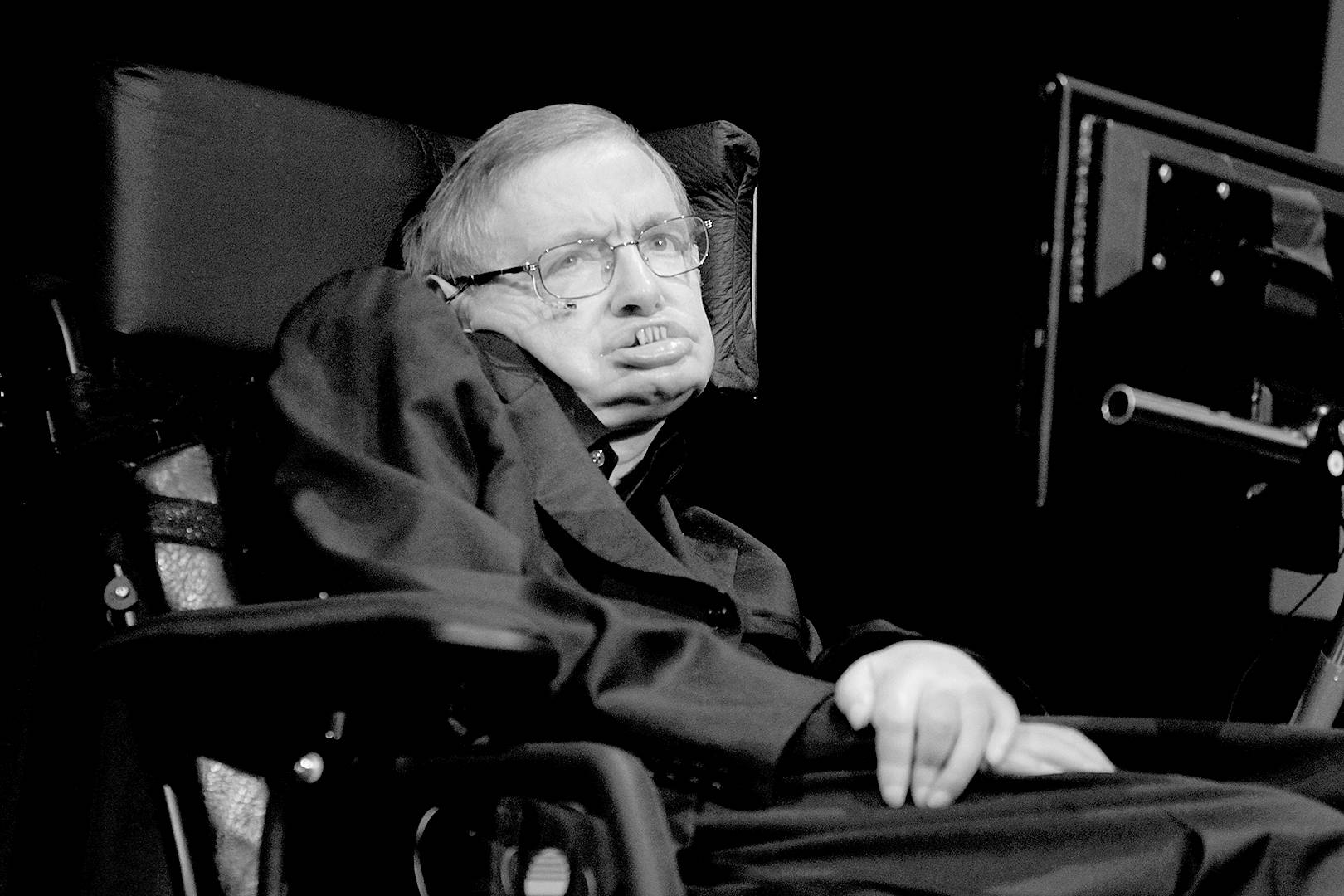By Verne Gay
Newsday
Stephen Hawking, who died early Wednesday at the age of 76, was perhaps the most exclusive guest star in television history. He appeared on — or rather graced — both “The Simpsons” and “The Big Bang Theory” a number of times. Cameos on both were invariably preceded by national news stories both here and in the United Kingdom. Outtakes became viral, and remain viral to this day.
He also appeared — or rather his voice did — three times on “Futurama,” while his 1993 cameo on “Star Trek: The Next Generation” is easily the most memorable cameo by a physicist on any iconic pop cultural fixture ever. One reason for that is because he also appeared with Isaac Newton and Albert Einstein (or at least facsimiles of both).
Simply put, Hawking was the “get” of gets, but very few series ever actually got him. Those that did, notably “The Simpsons” and “TBBT,” owe him a debt of gratitude because he helped establish both their cultural and intellectual bona fides. Yes, Hawking was a very big deal indeed.
Why TV’s long-standing excitement over Hawking? To a certain extent, shows like “The Simpsons” and “TBBT” are written by particularly bright (and nerdy) fanboys and fangirls, who understood that a Hawking visitation conferred a certain dignity on a fundamentally undignified enterprise — television comedy. He raised their game, and to an extent ennobled it as well.
But the better reason is simply that he was a particularly good comic actor, with superb timing, and improbably managed these skills by not acting at all. His art was in his delivery — invariably dry, always funny.
“Are you that physicist who invented gravity?,” he was asked on “Futurama.”
“Sure, why not.”
When he was interviewed in 2014 on “Last Week Tonight with John Oliver,” the host asked him about multiple universes, and whether there was a universe “where I am smarter than you.”
Hawking: “Yes, and also a universe where you are funny.”
In his first appearance on “TBBT” — 2012’s famed “The Hawking Excitation” — Sheldon (Jim Parsons) finally gets to meet his hero in person, only to learn that the paper he has submitted to Hawking for a benediction has a “boo-boo” on page two.
Sheldon insists that there is no mistake, but when it’s pointed out, he faints.
“Great,” deadpans Hawking. “Another fainter.”
In another famed exchange, he was asked by Howard (Simon Helberg) what “the Big Bang and Sheldon have in common?”
Hawking: “They both suck. Neener, neener!!”
Hawking clearly relished his TV appearances, but perhaps understood them to be part of a greater good, in which his ideas would be embraced — or at least broached — by the culture at large.
Perhaps — or maybe he simply was a fanboy himself.
In an online interview several years ago, he was asked about his “Simpsons” cameos, and said, “The appeal of ‘The Simpsons’ is that the characters display all the traits we see in ourselves, in particular Homer, the ultimate middle-aged man who repeatedly fails his kids, messes up at work, and is always trying to get something for nothing. My daughter knew one of the ‘Simpsons’ scriptwriters and he said he’d like to write (an episode) and I accepted immediately because it would be fun. ‘The Simpsons’ is the best thing on American television.”
Then he added, “More people know me through ‘The Simpsons’ than through my science.”
Al Jean, the lontime showrunner of “The Simpsons,” tweeted Wednesday morning: “RIP Stephen Hawking. A sense of humor as vast as the universe.”
Perhaps Hawking’s most famous “Simpsons’” appearance was season 10’s May 9, 1999 episode, “They Saved Lisa’s Brain.” In this one, he came to Springfield “because I wanted to see your utopia. Now I see it as a fruitopia,” he said addressing the good citizens of the town.
“I don’t know which is a bigger disappointment — my failure to formulate a unified field theory, or you.”
A riot breaks out, and Hawking prepares a hasty exit by pushing a couple of buttons on his flying wheelchair — one of which orders pizza and another which activates a boxing glove that punches the quarrelsome mayor of Springfield in the face.
Hawking later laughed about the flying wheelchair with its many magical buttons: “I was depicted as a surreal character with enormous powers,” he said in the online interview. “But I don’t like pizza and hope I would never have to use a boxing glove.”
“But sometimes I am sorely tempted.”


